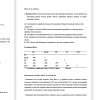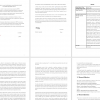Тема: The Transition to Cleaner Fuel Technologies in India: Assessing middle to high income consumer’ attitudes and willingness to pay
Закажите новую по вашим требованиям
Представленный материал является образцом учебного исследования, примером структуры и содержания учебного исследования по заявленной теме. Размещён исключительно в информационных и ознакомительных целях.
Workspay.ru оказывает информационные услуги по сбору, обработке и структурированию материалов в соответствии с требованиями заказчика.
Размещение материала не означает публикацию произведения впервые и не предполагает передачу исключительных авторских прав третьим лицам.
Материал не предназначен для дословной сдачи в образовательные организации и требует самостоятельной переработки с соблюдением законодательства Российской Федерации об авторском праве и принципов академической добросовестности.
Авторские права на исходные материалы принадлежат их законным правообладателям. В случае возникновения вопросов, связанных с размещённым материалом, просим направить обращение через форму обратной связи.
📋 Содержание
Abstract 4
Chapter 1. Introduction 6
1.1 Research Motivation 7
1.2 Research Objectives 9
1.3 Research Questions 9
Chapter 2. Literature Review and Hypothesis Development 10
2.1 The Theory of Planned Behavior 10
2.1.1 Impact of Culture, Gender, and Behaviour on Green Purchase 12
2.1.2 Electric Cars in India 13
2.2 Technology Acceptance Model (TAM) 15
2.2.1 Evolution of emission standards in India: Case of Bharat Stage Norms 16
2.3 Theoretical Framework 20
2.4 Hypothesis 22
Chapter 3. Methodology 22
3.1 Survey Questionnaire 23
Chapter 4. Results 25
4.1 Survey Descriptive 25
4.2 Results 38
Chapter 5. Discussion and Conclusion 46
5.1 Discussion 46
5.2 Conclusion 47
5.3 Limitations of the study
📖 Введение
The transition to cleaner fuel technologies in India represents a pivotal juncture in the nation's trajectory towards sustainable development and environmental stewardship. Against the backdrop of escalating environmental concerns and mounting pressures to curb vehicular emissions, the shift from Bharat Stage (BS) IV to Bharat Stage VI (BS VI) emission norms emerges as a cornerstone initiative aimed at fostering eco-friendly mobility solutions. This study serves to contextualize and frame the research focus on assessing the attitudes and willingness to pay (WTP) of middle to high-income consumers in India regarding the adoption of cleaner fuel technologies, particularly within the framework of the BS emission standards.
The transition from BS IV to BS VI compliant vehicles heralds a paradigm shift in India's automotive landscape, marked by a heightened emphasis on reducing vehicular emissions and enhancing air quality. Empirical investigations, such as the study by Vats et al. (2022), delve into the nuanced dynamics of consumer behaviour, exploring the determinants of switching intention and shedding light on the factors influencing the adoption of cleaner fuel technologies. Complementing these empirical insights, technical reviews by scholars like Mirgal (2017) and Pothumsetty and Thomas IV (2020) provide invaluable perspectives on the challenges and strategies associated with the transition to BS VI norms, offering actionable guidance for industry stakeholders and policymakers alike.
The imperative to address the environmental and health impacts of vehicular emissions underscores the urgency of transitioning to cleaner fuel technologies. Scholarly inquiries, such as those conducted by Gajbhiye et al. (2023) and Singh et al. (2023), meticulously examine the evolution and mitigation of vehicular emissions under the BS emission standards, underscoring the pivotal role of stringent regulations in improving air quality and safeguarding public health.
Central to the successful implementation of cleaner fuel technologies is the understanding of consumer attitudes and behaviours, which serve as pivotal drivers of adoption. Drawing upon theoretical frameworks such as the Theory of Planned Behaviour (Ajzen, 1991) and its application in understanding green purchase behaviour (Yadav & Pathak, 2017), this research endeavours to unravel the intricate interplay of psychological determinants shaping consumer preferences and behaviours towards sustainable transportation options.
In light of these considerations, the present study seeks to holistically assess middle to high- income consumers' attitudes and WTP for cleaner fuel technologies in India. By synthesizing empirical evidence, technical insights, and theoretical frameworks, this research endeavours to offer a comprehensive understanding of the factors influencing consumer adoption of cleaner fuel technologies. Ultimately, the findings of this study aspire to inform targeted policy interventions and market strategies aimed at catalysing the transition to eco-friendly mobility in India, thereby fostering a greener, healthier, and more sustainable future for generations to come.
Concentrating on middle to high-income consumers, in the Indian context, when examining the shift toward cleaner fuel technologies provides significant insights owing to their substantial purchasing power, influence on market dynamics, and inclination to embrace innovation. Their uptake of cleaner fuel technologies not only carries substantial environmental implications but also offers policymakers valuable feedback on the efficacy of sustainabilitypromoting measures. Analysing this demographic facilitates refined market segmentation and targeting tactics. Nonetheless, ensuring inclusivity and fairness in sustainable development initiatives necessitates the inclusion of diverse socio-economic perspectives in future research undertakings.
✅ Заключение
The findings highlight the significance of consumers' perceptions about technology performance, societal attitudes, and governmental policies in influencing their adoption of cleaner technology vehicles. Positive attitudes towards environmental responsibility and higher incomes are associated with greater willingness to pay for greener vehicles, although concerns about cost remain a significant barrier to adoption.
The study highlights the robustness of the integrated theoretical framework comprising TPB and TAM in elucidating the complex interplay of individual, societal, and policy factors shaping consumer behaviour. By addressing multiple dimensions of consumer decisionmaking, this research offers actionable insights for policymakers, industry stakeholders, and researchers seeking to promote sustainable transportation practices in India.
Theoretical Implications
• Expanded Framework: By integrating the Theory of Planned Behaviour (TPB) and the Technology Acceptance Model (TAM), this study provides a more comprehensive understanding of consumer behaviour towards cleaner fuel technologies. This expanded framework can be applied to future research in similar contexts.
• Consumer Behaviour Insights: The findings highlight the significant role of technology performance, societal attitudes, and governmental policies in shaping consumer attitudes and willingness to pay for cleaner vehicles. These insights add depth to the existing literature on consumer decision-making in the adoption of sustainable technologies.
• Complex Interplay: The study underscores the complex interplay of individual, societal, and policy factors in influencing consumer behaviour. This multi-faceted approach can inform the development of more nuanced theoretical models in future research.
• Inclusion of Environmental Responsibility: By demonstrating the impact of environmental responsibility and income on consumer willingness to pay, the study contributes to the growing body of research that links environmental consciousness with consumer behaviour.
Practical Implications
• Policy Development: The study provides actionable insights for policymakers to design and implement effective policies that promote the adoption of cleaner fuel technologies. Emphasizing the importance of governmental incentives and supportive policies can enhance consumer acceptance.
• Marketing Strategies: Industry stakeholders can use the findings to develop targeted marketing strategies that highlight the performance benefits of cleaner vehicles and appeal to societal attitudes towards environmental responsibility. Addressing cost concerns through financing options or subsidies can also encourage adoption.
• Educational Campaigns: The significance of societal attitudes suggests that public awareness and education campaigns about the benefits of cleaner fuel technologies can play a crucial role in changing consumer perceptions and behaviours.
• Product Development: Manufacturers can leverage the insights on consumer preferences and concerns to innovate and design cleaner vehicles that meet performance expectations while addressing cost barriers.
• Broader Consumer Engagement: To promote wider adoption, efforts should be made to engage diverse demographic segments, including lower-income and rural populations, ensuring that cleaner fuel technologies are accessible and appealing to a broader audience.





